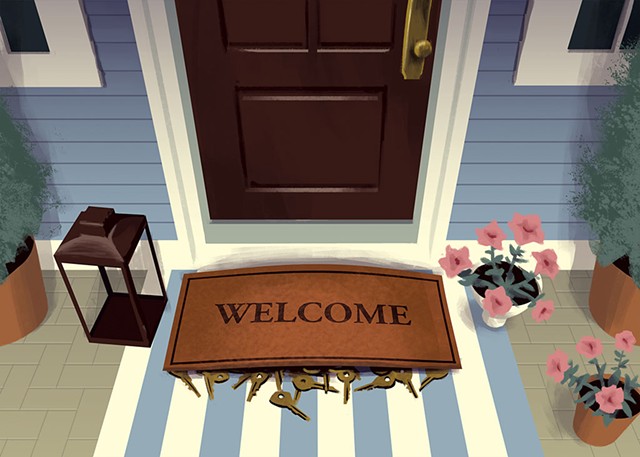
- Andrew Mulhearn
A long, arduous debate over how to regulate short-term rentals in Burlington appeared to be settled last summer when city councilors approved new regulations meant to prevent the industry from cannibalizing the Queen City's housing market.
But a year later, not everyone has fallen in line. A Seven Days review of listings on Airbnb and Vrbo turned up at least 20 units whose owners appear to be flouting the city ordinance.
Officials gave short-term rental hosts a lengthy grace period to come into compliance, and it ran out at the end of May. To compel people to follow the law, the city plans to start issuing tickets in July. But some question whether the $100 fines will discourage hosts, who can make three times that much from a single evening's rental.
Meantime, the changes have prompted a group of short-term rental hosts to hire lawyers to review the ordinance in hopes of challenging it. In short: Actually enforcing the regulations will be a difficult endeavor.
Burlington has about 240 active short-term rentals, city data show, defined as dwelling units that are rented for fewer than 30 consecutive days and for more than 14 days in a 12-month period. Hosts can rent their primary home; an apartment in the building they live in; or an outbuilding on their lot, such as an accessory dwelling unit.
Short-term rental hosts are required to live on-site, with two exceptions: seasonal homes or an apartment in a building that has other long-term units that meet certain affordability specifications. Hosts are limited to just one of these "whole-unit" rentals; alternatively, they can rent up to three bedrooms in the home where they live.
Hosts pay a 9 percent tax on their earnings in addition to the existing 9 percent rooms and meals tax. The extra levy has generated more than $412,000 for the city's Housing Trust Fund, which supports affordable housing projects. Mayor Miro Weinberger hopes to use the money to support initiatives to end homelessness and for programs to expand homeownership among first-generation buyers. Annual fees paid by hosts — which range from $80 to $110 — have brought an additional $118,000 in to city coffers.
Short-term rentals have existed in Burlington for years, but officials began wrestling with the issue in earnest in summer 2019, when there were upward of 700 within city limits. Lacking an Airbnb rule book, the city permitted the rentals as bed-and-breakfasts, an outdated designation in city zoning that also required hosts to live on-site. Owners of rentals that didn't meet that definition were essentially allowed to do as they pleased — and make good money doing it.
The new ordinance is meant to compel people to convert their short-term units into long-term ones. Burlington landlord Julie Marks did just that with her Elmwood Avenue rental, but she's none too happy about it. Marks, who lives in Jericho and is the executive director of the Vermont Short-Term Rental Alliance, said she had to raise the rent on the other two apartments in her building to make up lost revenue; even then, she'll make $10,000 less this year. Marks said that makes it harder to maintain the 200-year-old building.
"I feel like I am suffering a consequence for no reason," she said.
Marks may have taken pains to come into compliance, but some of her peers haven't. Seven Days reviewed dozens of online listings and cross-checked them with property records, voter checklists and business filings with the Vermont Secretary of State's Office to find hosts who have multiple short-term units when the rules appear to limit them to one.
None were particularly eager to talk. Kathryn Budnik, who has two New North End homes on Airbnb, abruptly ended a phone call when asked to discuss the city's ordinance. The listing for one of those units, at 38 Pennington Drive — a "cute home near the bike path and lake" — costs an average of $375 a night and is taking reservations through September. Tax records show Budnik purchased the home in September 2021 as an investment property.
Andria Lovejoy, who also has two whole-home rentals, declined an interview with Seven Days, contending that news coverage of the issue is "predetermined to be anti-Airbnb." Lovejoy said she's complying with the ordinance, but public records suggest she doesn't live in either home she's short-term renting.
Lovejoy's partner, James Grier, cohosts four whole-unit short-term rentals with Sam Gardner, a Burlington property owner who appears to have seven additional whole-unit short-term rentals spread across several buildings in the city. At least two of the four apartments at 180 North Street are on Airbnb, each outfitted with "very modern new finishes" and a Nespresso coffee maker. His two units on Manhattan Drive promise free parking. The city is reviewing Gardner's holdings.
Gardner initially agreed to an interview with Seven Days but stopped responding when asked about his compliance with the ordinance. Other hosts didn't answer repeated requests for comment.
Sean Hurley said he'd like to discuss his short-term rental but that his business partners advised him not to. Hurley and a group of hosts have hired Burlington firm MSK Attorneys to evaluate the ordinance language. His legal team includes A.J. LaRosa, who serves on the city's Development Review Board.
A court may determine whether the ordinance is fair, Hurley said. "That is owed to the citizenry, the taxpayers, the customers," he said, calling the regulations "needlessly harmful."
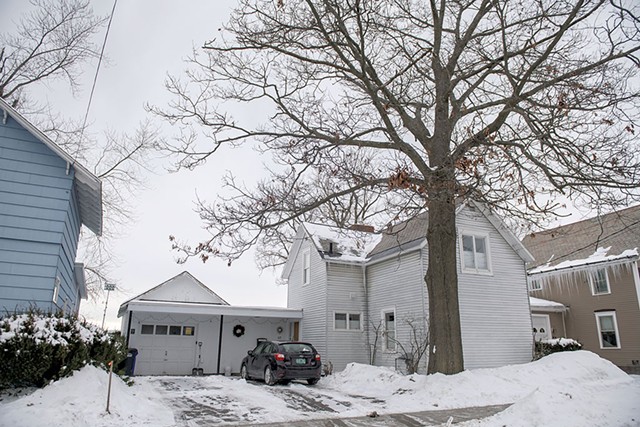
- File: Daria Bishop
- 117 Lakeview Terrace in Burlington
Hurley and a group of investors purchased a home at 117 Lakeview Terrace in March 2021 for $870,000. A five-night stay at the four-bedroom, two-bathroom home, which has sweeping views of Lake Champlain and the Adirondacks beyond, goes for nearly $4,600.
Hurley is already on the city's radar. In February 2022 the city cited him under the former bed-and-breakfast regulations for running an unlicensed short-term rental after determining he actually lives on Drew Street. Because the council adopted the short-term rental ordinance shortly after, the city hasn't penalized Hurley for the violation.
Bill Ward, director of Burlington's Permitting & Inspections office, said it "seems like a very glaring problem" if Hurley has continued operating the Lakeview rental.
The prescribed fines — $100 for the first offense and $200 for the second — may not be enough to dissuade hosts who are making hundreds of dollars per night, Ward acknowledged. He expects the city will eventually take property owners to court, just as it can for other housing violations. A judge could decide to issue a permanent injunction that would stop hosts from renting their property.
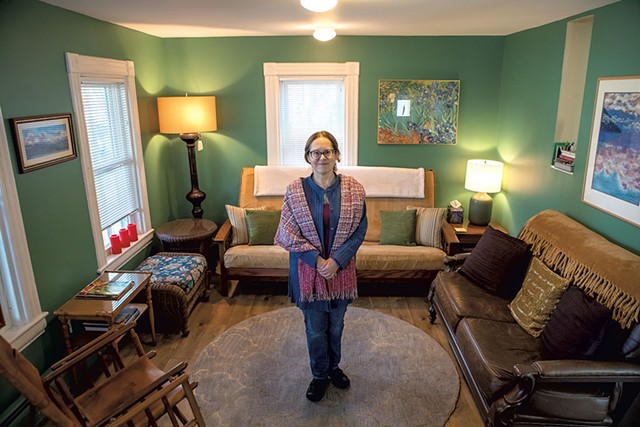
- File: Luke Awtry
- Deb Lyons in her Airbnb
Deb Lyons, who operates a short-term rental on the same lot as her Old North End home, said she's already heard that some hosts plan to pay the fines and keep operating.
"People will push the envelope," she said. "There are some who have stopped short-term renting ... and there are others who are just ignoring the rules and continuing on until they get pushed up against the wall."
Weinberger said it would be risky to adopt a catch-me-if-you-can attitude. Enforcing the ordinance is a priority, he said, adding that the city won't hesitate to adopt stronger penalties if the existing ones are too lax.
But the mayor also recognizes that the enforcement phase is just beginning. The city has contracted with Granicus, a Denver, Colo.-based company, to search short-term rental sites and report back with the number of active listings. Separating those in compliance with the ordinance from the rest will take local talent: If a listing doesn't include an exterior photo, for example, city staff will have to draw on their knowledge of a property's interior — gleaned from regular inspections — to identify its location. Hosts may then be asked to provide tax records and long-term leases to prove who lives there.
"We'll be going through uncharted territory," Ward said. "I think it's going to be a busy July."

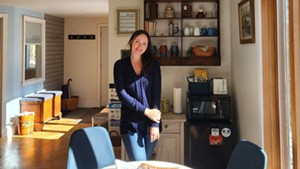
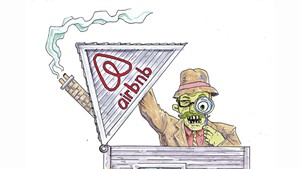
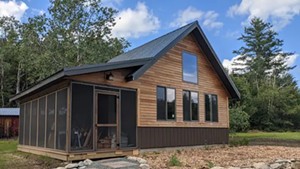










Comments
Comments are closed.
From 2014-2020, Seven Days allowed readers to comment on all stories posted on our website. While we've appreciated the suggestions and insights, right now Seven Days is prioritizing our core mission — producing high-quality, responsible local journalism — over moderating online debates between readers.
To criticize, correct or praise our reporting, please send us a letter to the editor or send us a tip. We’ll check it out and report the results.
Online comments may return when we have better tech tools for managing them. Thanks for reading.